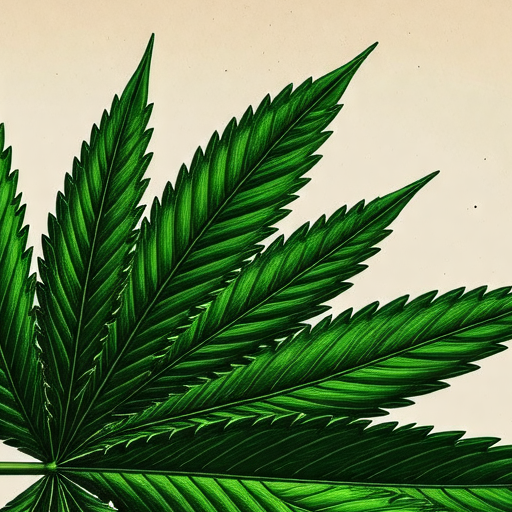
Cannabis, scientifically recognized as *Cannabis sativa,* has surged in popularity, particularly in the backdrop of evolving legal frameworks and growing acceptance of its medicinal properties. However, as with any psychoactive substance, the potential for misuse exists. This article delves into the phenomenon of Cannabis Use Disorder (CUD), examining its etiology, clinical manifestations, and therapeutic interventions.
Cannabis Use Disorder refers to a spectrum of behavioral, cognitive, and physiological symptoms associated with cannabis dependence. Unlike substances with a high potential for physical dependence, such as opioids or nicotine, cannabis primarily exerts its addictive potential through psychological mechanisms. Individuals diagnosed with CUD may experience a compulsive pattern of cannabis consumption despite adverse consequences in multiple areas of life, including social, occupational, or interpersonal realms.
According to the Diagnostic and Statistical Manual of Mental Disorders, Fifth Edition (DSM-5), CUD encompasses a range of indicators, which vary in severity, contingent upon the number of diagnostic criteria met by the individual. These criteria include tolerance, withdrawal symptoms, and the inability to reduce usage despite a desire to do so.
The development of Cannabis Use Disorder is multifactorial, stemming from an interplay of genetic, environmental, and psychological factors:
1. Frequent Use: Daily or habitual ingestion significantly heightens the risk of developing CUD. The neuroadaptive changes in the brain’s reward circuitry can foster a dependency pathway.
2. Age of First Use: Initiating cannabis consumption during adolescence—when the brain is still maturing—can predispose individuals to future dependency. Adolescents are particularly vulnerable due to the ongoing development of the prefrontal cortex, responsible for executive functions and impulse control.
3. Genetic Factors: Emerging research identifies genetic polymorphisms influencing susceptibility to various substance use disorders, including cannabis. Variants in genes related to the dopaminergic system may play a pivotal role.
4. Mental Health Conditions: Individuals with comorbid psychiatric disorders, such as anxiety, depression, or post-traumatic stress disorder (PTSD), may utilize cannabis as a form of self-medication, inadvertently increasing their risk for CUD.
5. Environmental Context: Social environments that normalize cannabis use, coupled with peer influence and increased accessibility, can further exacerbate the risk of developing problematic usage patterns.
Symptoms of CUD are diverse and reflect the multifaceted nature of the disorder. Common indicators include:
– Inability to Reduce Use: Despite attempts to curtail consumption, individuals report significant difficulty in moderating their intake.
– Increased Tolerance: Over time, users may find that they require larger quantities of cannabis to experience the desired effects, leading to escalated consumption.
– Compulsive Use: Individuals may allocate substantial time to the procurement and consumption of cannabis, detracting from responsibilities and relationships.
– Withdrawal Symptoms: Physical and psychological withdrawal can occur upon cessation, manifesting as irritability, sleep disturbances, appetite changes, and heightened anxiety.
– Continued Use Despite Adverse Consequences: Many individuals persist in using cannabis despite facing legal, health, or social repercussions stemming from their consumption patterns.
The ramifications of CUD extend beyond immediate behavioral issues, encompassing potential long-term impacts on both physical and mental health. Research indicates that chronic cannabis use can lead to:
– Cognitive Impairment: Persistent use may adversely affect memory, attention, and executive functioning, posing challenges in academic and occupational settings.
– Mental Health Deterioration: There is a documented correlation between prolonged cannabis usage and exacerbation of mental health conditions, including anxiety disorders and psychosis, particularly in predisposed individuals.
– Respiratory Complications: Similar to tobacco smoking, the inhalation of cannabis can engender chronic bronchitis and other respiratory issues due to the inhalation of harmful particulates.
– Social Isolation: Dependency can lead to strained relationships and social withdrawal, perpetuating a cycle of isolation that further complicates recovery efforts.
Addressing CUD is a complex endeavor requiring a multimodal approach. Effective treatment strategies include:
1. Cognitive Behavioral Therapy (CBT): This therapeutic modality focuses on identifying and modifying maladaptive thought patterns and behaviors associated with cannabis use, equipping individuals with coping strategies to manage triggers and cravings.
2. Motivational Enhancement Therapy (MET): By enhancing intrinsic motivation, MET encourages individuals to pursue meaningful changes in their cannabis consumption patterns.
3. Support Groups: Engaging in community support networks, such as Marijuana Anonymous, provides individuals with social reinforcement and shared experiences, fostering accountability and encouragement.
4. Pharmacotherapy: While no specific medications are approved for CUD, certain pharmacological agents may alleviate withdrawal symptoms or address co-occurring mood disorders.
5. Lifestyle Modifications: Incorporating positive lifestyle changes, including regular exercise, mindfulness practices, and nutritional improvements, can promote overall wellness and diminish reliance on cannabis.
6. Professional Counseling: Collaborating with a specialist in addiction counseling can yield tailored interventions and sustained support throughout the recovery journey.
Cannabis Use Disorder emerges as a significant public health concern, affecting numerous individuals who may be unaware of the detrimental nature of their cannabis consumption. By recognizing the signs and understanding the underlying factors contributing to CUD, early intervention becomes possible. With appropriate treatment modalities, individuals can reclaim their lives from dependency and enhance their overall well-being.
If you or someone you know is grappling with cannabis use issues, seeking assistance from a healthcare professional or addiction specialist is crucial. Early intervention can mitigate the adverse consequences associated with CUD, promoting a healthier and balanced lifestyle.

